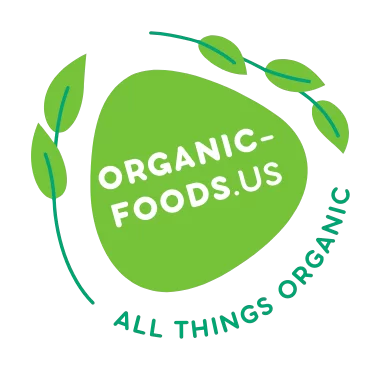Organic Nutrition for Natural Calcium Sources
Introduction to Calcium and Its Importance
Calcium is a vital mineral that plays a crucial role in maintaining bone health, muscle function, and nerve transmission. While many of us turn to supplements or fortified foods to meet our calcium needs, there’s a growing interest in sourcing this essential nutrient from organic, natural sources. This shift is driven by a desire to consume foods that are not only nutritious but also free from synthetic additives and pesticides. In this article, we’ll explore the world of organic nutrition and highlight some of the best natural sources of calcium that you can incorporate into your diet.
Why Choose Organic?
Choosing organic foods is more than just a trend; it’s a commitment to health and sustainability. Organic farming practices avoid the use of synthetic pesticides and fertilizers, which can have harmful effects on both the environment and our health. Studies have shown that organic produce can have higher levels of certain nutrients, including antioxidants, which are beneficial for overall health. When it comes to calcium, opting for organic sources ensures that you’re getting the mineral in its purest form, without the risk of contamination from chemicals used in conventional farming.
Top Organic Calcium-Rich Foods
There are numerous organic foods that are rich in calcium, making it easy to meet your daily requirements without relying on supplements. Here are some of the best options:
Organic Dairy Products
Organic dairy products, such as milk, cheese, and yogurt, are among the richest sources of calcium. A single serving of organic milk can provide around 300 mg of calcium, which is about 30% of the daily recommended intake for adults. Organic dairy is also free from synthetic hormones and antibiotics, making it a healthier choice for you and your family.
Organic Leafy Greens
Leafy greens like kale, spinach, and collard greens are not only packed with vitamins and minerals but also serve as excellent sources of calcium. For instance, a cup of cooked kale contains approximately 94 mg of calcium. These greens are also rich in vitamin K, which works synergistically with calcium to support bone health.
Organic Nuts and Seeds
Nuts and seeds are another fantastic source of calcium. Almonds, sesame seeds, and chia seeds are particularly high in this mineral. Just a quarter cup of almonds can provide around 75 mg of calcium. Additionally, these foods are rich in healthy fats and fiber, making them a nutritious addition to any diet.
Organic Tofu and Tempeh
For those following a plant-based diet, organic tofu and tempeh are excellent sources of calcium. These soy products are often fortified with calcium during the manufacturing process, with a half-cup serving of tofu providing up to 430 mg of calcium. They’re also versatile ingredients that can be used in a variety of dishes, from stir-fries to smoothies.
Integrating Organic Calcium Sources into Your Diet
Incorporating these organic calcium-rich foods into your diet is easier than you might think. Here are some practical tips to help you get started:
Start Your Day with a Calcium Boost
Begin your morning with a glass of organic milk or a bowl of yogurt topped with organic nuts and seeds. This not only provides a good dose of calcium but also sets a healthy tone for the rest of your day.
Salads and Smoothies
Add a handful of organic leafy greens to your salads or blend them into smoothies. You can also sprinkle organic sesame seeds or chia seeds on top for an extra calcium boost.
Snack Smart
Keep organic almonds or other calcium-rich nuts on hand for a quick and nutritious snack. They’re perfect for satisfying hunger between meals while contributing to your daily calcium intake.
Explore Plant-Based Options
If you’re looking to reduce your dairy consumption, try incorporating organic tofu or tempeh into your meals. These can be used in a variety of dishes, from stir-fries to sandwiches, making it easy to meet your calcium needs.
The Benefits of Organic Calcium Sources
Choosing organic calcium sources offers several benefits beyond just meeting your nutritional needs. Organic foods are often more nutrient-dense and free from harmful chemicals, which can contribute to better overall health. Additionally, supporting organic farming practices helps promote sustainable agriculture and protects the environment.
Research has shown that organic produce can have higher levels of certain nutrients, including antioxidants, which are beneficial for overall health. For example, a study on organic nutrition found that organic fruits and vegetables can have up to 20% higher antioxidant content compared to their conventionally grown counterparts. This means that by choosing organic calcium sources, you’re not only getting the calcium you need but also a host of other health-promoting nutrients.
Comparing Organic and Conventional Calcium Sources
To help you make an informed decision, let’s compare the calcium content and other nutritional benefits of organic versus conventional sources. The following table provides a snapshot of the differences:
| Food Source | Organic Calcium Content (mg per serving) | Conventional Calcium Content (mg per serving) | Additional Benefits of Organic |
| Milk (1 cup) | 300 | 300 | No synthetic hormones or antibiotics |
| Kale (1 cup, cooked) | 94 | 94 | Higher antioxidant levels |
| Almonds (1/4 cup) | 75 | 75 | Higher levels of healthy fats and fiber |
| Tofu (1/2 cup) | 430 | 430 | No GMOs, higher nutrient density |
As you can see, while the calcium content remains similar between organic and conventional sources, the additional benefits of choosing organic are significant. These include higher levels of antioxidants, no synthetic hormones or antibiotics, and a commitment to sustainable farming practices.
Conclusion
Organic nutrition offers a natural and sustainable way to meet your calcium needs. By incorporating organic dairy products, leafy greens, nuts, seeds, tofu, and tempeh into your diet, you can ensure that you’re getting the calcium you need while also supporting your overall health and the environment. Remember, the key to a healthy diet is variety, so don’t be afraid to experiment with different organic calcium sources to find what works best for you.
As you embark on your journey to better health through organic nutrition, keep in mind that every choice you make contributes to a healthier planet. Whether you’re sipping on a glass of organic milk or tossing a handful of organic almonds into your salad, you’re making a positive impact on your health and the world around you. For more information on the benefits of organic nutrition, you can explore resources like the Organic Center, which provides valuable insights and research on organic foods and their impact on health and the environment.

